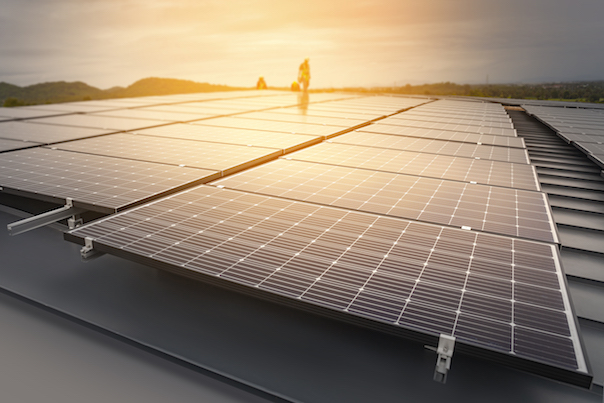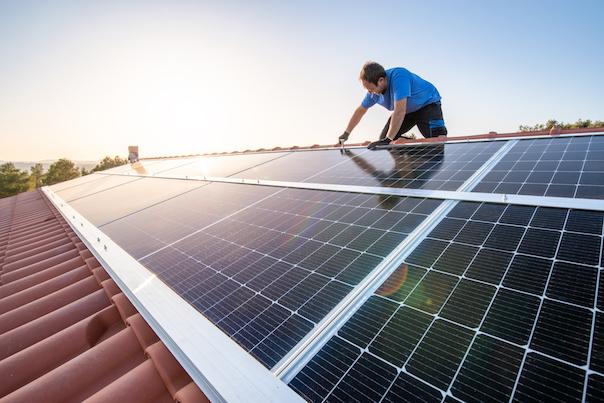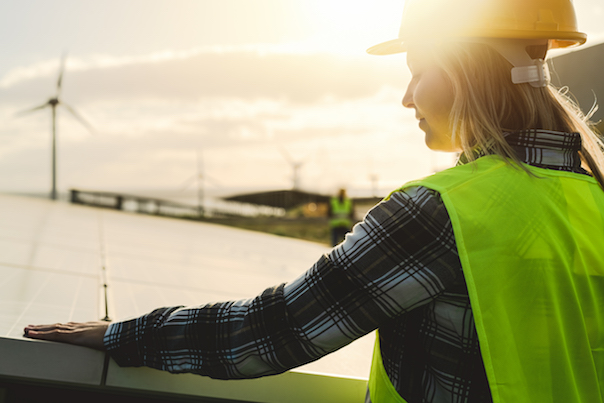Subsidies for solar panels: grants for their installation in each autonomous community
An updated compilation of all the grants, rebates and subsidies that you can apply for in Spain for your self-consumption installation.


Spain is one of the countries in Europe with the most hours of sunlight. This is a fact that we can and must take advantage of to continue fighting climate change and change our energy model. With this goal in mind, the government's latest move was to approve a plan for grants last June that will change the rules of the game and boost self-consumption in the regions over the next two years. These will be used to implement programmes with incentives linked to self-consumption and storage and with renewable energy sources, as well as for the implementation of renewable thermal systems in the residential sector, within the framework of the Recovery, Transformation and Resilience Plan (RTRP).
Within this roadmap, six incentive programmes for self-consumption, storage and thermal uses of renewable energies were also approved. This project will be endowed with a combined initial amount of €660 million to be financed with funds from the Recovery and Resilience Mechanism.
While this strategy is being implemented, for now the State Housing Plan 2018-2021 is in force, which establishes the regulation of energy efficiency and sustainability. In other words, applied to self-consumption, it allows the possibility of applying for grants for the installation of solar panels in homes and buildings. Each autonomous community sets the specific requirements for accessing them.

These grants are a key factor in determining how long it may take for a household to pay back the investment. That is why it is so important to know about them. The closing date of the call is 31 December 2023.
Broadly speaking, the subsidies available are divided into two: those applied to the cost of installation and those applied to taxes. As for the latter, there are rebates for the Property Tax (IBI) and the Construction, Installations and Works Tax (ICIO), as they are municipal taxes, these grants vary according to the town council. IBI can be subsidised for several years, with a maximum 50% subsidy. On the other hand, the ICIO is a one-time tax, so it can only be subsidised once.
These are the grants, rebates and subsidies offered by the 17 autonomous communities for the installation of solar panels:
Andalusia
- Subsidies on the price of the installation: up to 90% of the total eligible costs: this depends on the action and the type of beneficiary (there are three types of incentive lines: sustainable construction, SMEs and smart grids).
- Grants: up to 50% of the IBI tax for a period of time ranging from 3 to 30 years, depending on the province.
- ICIO tax rebates: up to 95%.
You can expand this information on our page on grants from Andalusia and on the Andalusian Energy Agency.
Aragon
- Subsidies vary depending on the power output: up to €2,000/kWp for PV installations without storage and up to €3,500/kWp with storage (storage can be storage tanks, heats exchangers, expansion vessels, pipes, valves andd connections, circulation pumps, insulation).
- Grants: up to 50% of IBI tax for 5 years, depending on the province.
- ICIO tax rebates: up to 75%. Depends on each Town Council.

Asturias
- Subsidies of €800/kWp for installations without storage and €2,000/kWp for installations with storage, with a maximum of 40% of the total budget.
- Grants: the IBI rebate is 30% for 5 years. It is not a regional competence and depends on each municipality.
- ICIO tax rebates: up to 30%.
Balearic Islands
- In the Balearic Islands there is an initial differentiation between individuals (up to a maximum of 3 kWp) and companies (maximun 50kWp), with a maximum of up to 50% of the total budget for subsidies.
- Grants: 50% discounts on IBI for 3 years.
- ICIO: tax rebates: up to 95%.
Canary Islands
- The Canary Islands offers subsidies of up to 45% of the total budget, provided that it does not exceed €200.000.
- Subsidies: the IBI rebate on photovoltaic solar installations is 50% for 5 years, the duration will vary according to the specific regulation of each island.
- ICIO tax rebates: up to 90%.
Cantabria
- Subsidies up to 40% of the total installation budget.
- Grants: the IBI rebate on the installation of photovoltaic solar panels between 30% and 25% for 5 years depending on the area.
- ICIO tax rebates up to 95%. This community is targeting the rural environment, and offers grants for self-consumption for homes or agricultural facilities with a surface area greater than 30 square metres and whose investment in self-consumption is greater than €1,500. The maximum amount to be offered will be €50,000.

Castile-La Mancha
- Subsides of 30% of the total budget for renewable energy installations such as photovoltaic, with a maximum of €30,000 per installation.
- Grants: the IBI rebates are 30% for 5 years.
- ICIO tax rebates: up to 60%.
Castile and Leon
- Subsidies for the installation of solar panels in Castile and Leon can be up to 40% of the total cost of the installation.
- Grants: the IBI rebates are 50% for 5 years (depending on the regulations of each province).
- ICIO tax rebates: up to 95%. There will be subsidy discounts in municipalities with less than 5,000 inhabitants and SMEs.
Catalonia
- Subsidies on the price of the installation: grants for the installation of solar panels can amount to 50% of the total budget..
- Grants: Catalonia offers a 50% IBI rebate on photovoltaic installations for 5 years (depending on the province).
- ICIO tax rebates: up to 95%.
Valencian Community
- Subsidies on the price of the installation: 20% of the total budget, with a maximum of €200,000.
- Grants: IBI rebates are 50% for 10 years (will vary depending on each province).
- ICIO tax rebates: up to 95%.

Extremadura
- In Extremadura the savings on the total installation price can be 40% of the total, with a maximum of €33,000 per installation.
- Grants: IBI deductions are 30% for 5 years.
- ICIO tax rebates: up to 95%.
Galicia
- Subsidies for the installation of solar panels in Galicia are 50% of the total budget, with a maximum amount of €60,000.
- Grants: the IBI deduction for the installation of photovoltaic panels is 50% for 3 years (depending on the regulation of each province).
- ICIO tax rebates: up to 95%.
La Rioja
- In La Rioja the subsidy on the total budget is 30%, with a maximum of €200.000.
- Grants: the deduction on the Property Tax is 25% for 3 years.
- ICIO tax rebates: up to 30%.
Community of Madrid
- Subsidies on the installation price: up to 30% of the total budget.
- grants: the IBI tax relief is 30% for 3 years. IBI is the responsability of the municipalty.
- ICIO tax rebates: up to 95%.
Consult the details of the grants provided by the Community of Madrid

Murcia
- Subsidies: grants of 25%, 35% or 45% can be extended to a further 20% in the case of battery storage installation (under special conditions).
- Grants: teh IBI tax relief is 30% for 3 years.
- ICIO tax rebates: up to 50%.
Navarre
- The Autonomous Community of Navarre does not offer ICIO grants or IBI rebates (because this tax is not applied), but it does have a grants system available for self-consumption photovoltaic installations based on percentages depending on the type of installation.
- Grants: tax deduction of 25% of the budget on personal income tax.
- The discounts for isolated self-consumption installations with batteries are increased by 10% and for shared self-consumption installations by a further 5%.
Basque Country
- It offers grants and subsidies depending on the type of project.
- Grants: the IBI rebate is 50% for 5 years.
- Maximum rebate of 50% on the cost of the installation.
Any more questions?
We will resolve them for you via any of our channels.
Contact us
You can contact us through either of these two channels